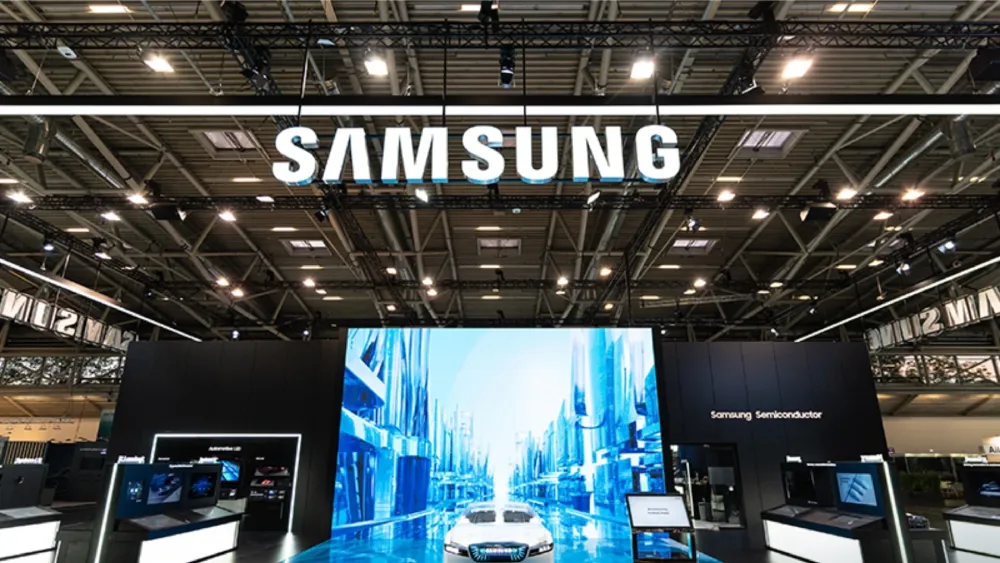A Glimpse into Samsung’s Beginnings
Imagine the bustling streets of Seoul in the 1930s, where a small trading company named Samsung was born amidst the traditional markets and evolving cityscape. Founded in 1938 by Lee Byung-chul, Samsung Electronics started as a trading company dealing in groceries, noodles, and textiles. Little did anyone know that this modest enterprise would eventually become a global technology giant, transforming industries and everyday life.
Founding and Early Years
In its formative years, Samsung was far from the tech powerhouse we know today. The company’s initial focus was on trading and exporting. It wasn’t until the 1960s that Samsung ventured into the electronics sector, setting the stage for its future success. The company’s first foray into electronics involved producing black-and-white televisions, marking the beginning of its journey into the world of technology.
Early Challenges and Breakthroughs
Samsung’s early days were fraught with challenges. From intense competition to navigating the complex electronics market, the company had to adapt quickly. One of the pivotal moments came in the 1970s when Samsung decided to invest heavily in research and development. This strategic move led to breakthroughs in semiconductor technology, which would later become a cornerstone of Samsung’s success.
Samsung’s Impact on Technology
Fast forward to today, and Samsung Electronics is a household name known for its cutting-edge technology and innovation. Let’s dive into the various ways Samsung has made its mark on the tech world.
Pioneering in Consumer Electronics
When we think of consumer electronics, Samsung’s name often comes up. The company’s product range is vast, from smartphones and televisions to home appliances. Let’s explore some of its key innovations.
Smartphones and Mobile Technology
Samsung’s Galaxy series, introduced in 2009, revolutionized the smartphone market. The Galaxy S series, in particular, has set numerous benchmarks in mobile technology, from high-resolution displays to powerful processors. According to Statista, Samsung held a 19.5% share of the global smartphone market in 2023, highlighting its significant influence in the industry.
Television and Display Innovations
Samsung has also been at the forefront of television technology. Its introduction of the world’s first 4K television in 2013 and subsequent advancements in OLED and QLED displays have set new standards for picture quality and color accuracy. In 2023, Samsung’s market share in the global TV segment was approximately 20%, according to Display Supply Chain Consultants.
Advancements in Semiconductor Technology
Beyond consumer electronics, Samsung is a powerhouse in semiconductor technology. This includes memory chips, processors, and other critical components.
Memory Chips and Storage Solutions
Samsung is the world’s largest manufacturer of memory chips. Its innovations in DRAM and NAND flash technology have been crucial for both consumer electronics and enterprise solutions. In 2023, Samsung’s semiconductor division generated over $100 billion in revenue, according to Samsung’s annual report.
Processor Technologies
Samsung’s Exynos processors have powered many of its devices, offering high performance and energy efficiency. These processors have been integral to the success of Samsung’s smartphones and tablets, competing directly with other leading brands in the industry.
Global Presence and Market Reach
Samsung’s influence extends well beyond South Korea. Its global footprint is vast, with a presence in nearly every major market around the world.
Key Markets and Regions
Samsung operates in numerous regions, including North America, Europe, Asia-Pacific, and Latin America. Its strategic market expansion has allowed it to capture a significant share of the global consumer electronics market.
Market Share and Financial Statistics
According to market research, Samsung’s revenue in 2023 exceeded $250 billion, with a significant portion coming from its electronics division. The company’s consistent financial performance underscores its dominant position in the global tech landscape.
Recent Innovations and Future Trends
Looking ahead, Samsung is poised to continue its role as a technology leader through ongoing innovation and strategic initiatives.
5G and Beyond
Samsung is heavily invested in 5G technology, aiming to lead the next generation of mobile connectivity. The company has been a key player in 5G infrastructure development, and its 5G-enabled devices are paving the way for faster, more reliable wireless communication.
Samsung’s Role in 5G Technology
Samsung’s contributions to 5G include advanced network solutions and cutting-edge devices. The company’s 5G technology is already being deployed in various countries, enhancing connectivity and enabling new applications.
Sustainability and Green Technology
Samsung is also focusing on sustainability. Its commitment to green technology includes reducing carbon emissions, enhancing energy efficiency, and using eco-friendly materials in its products. This commitment aligns with global efforts to combat climate change and promote sustainable development.
Challenges and Criticisms
Despite its successes, Samsung faces challenges and criticisms that impact its operations and public perception.
Competitive Pressures
Samsung operates in a highly competitive market, facing fierce competition from other tech giants such as Apple and Huawei. This competition drives continuous innovation but also poses significant challenges.
Legal and Ethical Issues
Samsung has encountered various legal and ethical issues over the years, including intellectual property disputes and labor practices. These issues highlight the complexities of operating on a global scale and the need for ongoing improvements in corporate governance.
Conclusion
Samsung Electronics has come a long way since its humble beginnings in the 1930s. Today, it stands as a global leader in technology, known for its innovation and market influence. From its groundbreaking consumer electronics to its advancements in semiconductor technology, Samsung’s impact on the tech world is undeniable. As the company continues to push boundaries and explore new frontiers, it remains a key player in shaping the future of technology.

